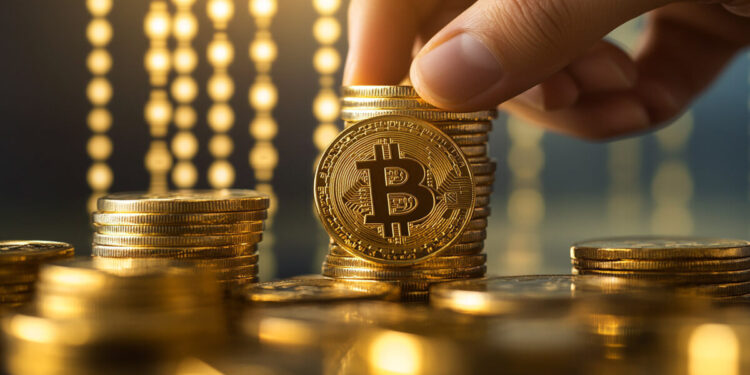Exploring New Strategies to Increase Bitcoin Holdings
A top White House official in the crypto space recently disclosed that the Trump administration is contemplating revaluing decades-old gold certificates as a unique method to enhance the country’s Bitcoin (BTC) holdings without impacting the federal deficit.
Considerations for Acquiring Additional Bitcoin
Bo Hines, who heads the President’s Council of Advisers on Digital Assets, mentioned in an interview on the Crypto in America podcast that the administration is open to exploring budget-neutral approaches to acquire more Bitcoin for the Strategic Bitcoin Reserve.
President Trump’s recent executive order authorized the establishment of a national Bitcoin reserve, indicating a significant shift in US digital asset policy.
The government currently holds around 207,000 BTC, primarily obtained through forfeitures, making it the largest known Bitcoin holder among nations.
Gold Revaluation as a Potential Strategy
Hines stated that the administration is actively considering various “creative” strategies to increase its Bitcoin reserves.
“There’s been countless ideas… If it’s budget neutral and doesn’t cost the taxpayer a dime, we’ll see whatever creative ideas we can come up with.”
One idea gaining traction involves reevaluating the full market value of gold-backed certificates that are currently undervalued.
Currently, gold certificates held by Federal Reserve banks are valued at a fixed statutory price of $42.22 per ounce, a value that has remained stagnant since the early 1970s.
With the current market price of gold at over $3,000 an ounce, the disparity between book value and market value presents an opportunity that could potentially be utilized to accumulate digital assets, according to Hines.
The BITCOIN Act of 2025
The concept aligns with the provisions outlined in the BITCOIN Act of 2025, proposed by Senator Cynthia Lummis. The bill urges the Federal Reserve to return outstanding gold certificates to the Treasury, which would then reissue them at a price reflecting the actual market value of the gold they represent.
Advocates suggest that this revaluation could result in substantial unrealized gains, funds that could be directed towards strengthening the federal Bitcoin reserve. Bipartisan efforts from lawmakers in the Senate and the House are underway to advance this legislation.
Hines emphasized that while no final decisions have been made, discussions between agencies are ongoing.
“We’re going to hear some tremendous ideas about how we can do it. I just don’t want to box us in yet to what that actually looks like because I want to be able to hear from everybody.”
Viewing Bitcoin as a Distinct Asset Class
Hines underscored that the administration perceives Bitcoin as a unique asset class with characteristics that set it apart from other digital currencies. He highlighted its decentralized nature and fixed supply, making it an appealing long-term store of value.
“David [Sacks] likes to say it has the immaculate conception, meaning there’s no issuer. It has intrinsic stored value, and it’s traditionally accepted store of value as well. We wanted to make that distinction [between stockpile and reserve].”
The administration’s approach to digital assets includes separate strategies for Bitcoin and a broader “stockpile” of alternative coins, each expected to be governed by distinct legal and regulatory frameworks.
Commerce Secretary Howard Lutnick previously emphasized the separate treatment of Bitcoin from other tokens under the executive order.







